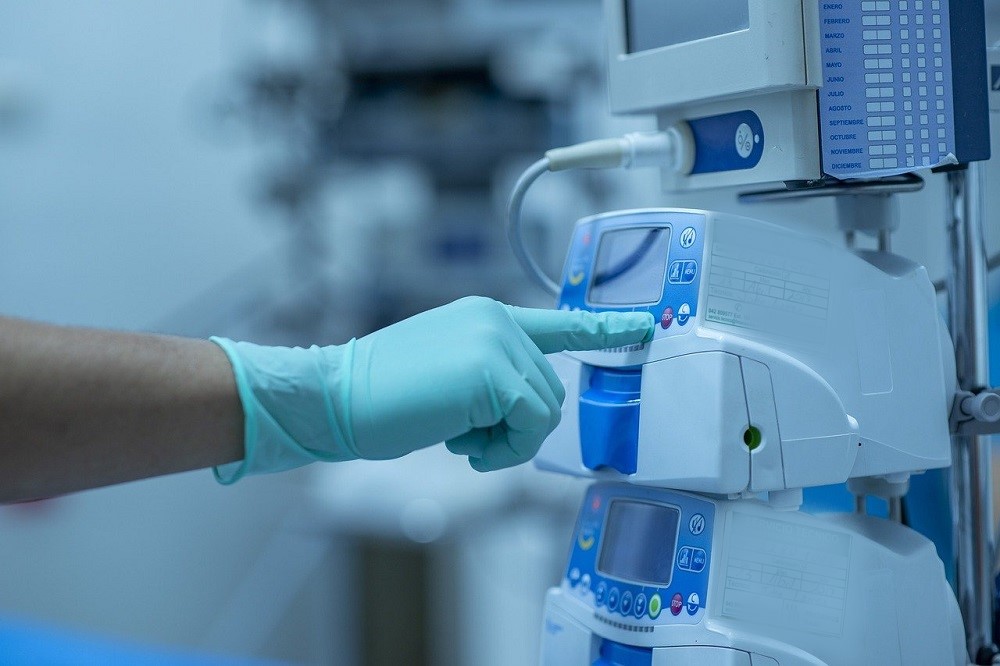Hospitals in Wales told to replace ventilators after safety alert is issued

The NHS in Wales has been ordered to source replacement ventilators after an electrical fault was identified in three different models made by the same manufacturer.
Thousands of of the ventilators made by Philips Respironics are being used in UK hospitals and the warning issued by the Medicines and Healthcare products Regulatory Agency (MHRA) says the the safety concern “relates to a number of electrical faults in the devices, which can result in an unexpected shutdown, leading to loss of ventilation”.
The agency’s notice of the fault warns: “If unnoticed by healthcare professionals, ventilation failure can have a severe health impact on patients. This can include hypoxia, which can result in long-term cognitive impairment to the patient.
“There is also a risk of death if a patient is without ventilation for a sustained period of time
“Philips has no permanent solution to correct this issue and as such we are issuing this alert to help hospitals manage the risk.”
In a National Patient Safety Alert released at the end of March, the MHRA said there had been five reported cases of shutdowns in the UK so far, none of which involved patient harm.
Worldwide, there have been 340 reports of these failures occurring and while the MHRA statement doesn’t specify the numbers, a report in the Guardian suggests that there has been one death and four incidents resulting in serious injuries, and in six incidents the alarm didn’t sound.
The affected machines include invasive and non-invasive ventilators used to support patients in critical care and high-dependency units.
Risk
As the Covid pandemic took hold of the UK in March 2020 the UK Government put out an urgent call for manufacturers to make more ventilators as at the time the NHS had less a third of the machines that modelling in China suggested would be necessary.
The MHRA brought in a fast approval process for ventilators and other medical devices in response to Covid-19 and Philips Respironics was one of several companies which responded to the increased need at the start of the pandemic.
However, as early as March 2020, the company had reported that there was a risk with around 300 of their ventilators, which at the time was thought to be caused by a problem with some circuit boards, and hospitals were warned that there could be a delay ordering replacement parts for the machines.
In September 2020 the MHRA told the Independent: “The MHRA first became aware of this issue in March 2020 when Philips Respironics circulated a field safety notice concerning this problem to their affected customers, a copy of which is available on www.mhra.gov.uk. The MHRA swiftly issued a Medical Device Alert to amplify the issue.”
According to the Guardian the Dutch medical equipment company said it was not advising customers to remove affected devices because of the “extremely low incidence” of problems, and instead recommends steps to lower the risks, such as connecting ventilators to a remote alarm system in case the primary alarm fails.
But the MHRA has ordered hospitals and healthcare providers to source alternative ventilators and train staff to use them, saying affected devices should be removed from use by the end of May. Until this happens, clinicians must increase monitoring of patients and ensure a backup ventilator is always available.
No warning
The agency says there are two ways in which this shutdown can occur. The first will sound a warning, alerting the user that the machine is shutting down, and of the need to switch to an alternative source of ventilation, during which time there is a risk that the patient will be unventilated.
The second failure mode will cause the device to shut down with no warning alarm meaning the patient will be unventilated until the clinician becomes aware and responds.
If any of the affected devices need to be used while appropriate alternatives are sourced, then a thorough risk assessment must be carried out and recorded before the patient begins ventilation.
Patients using these ventilators should be positioned in the ward where direct observation by healthcare professional staff is most feasible or considered for removal to a critical care setting.
A spokesperson for Philips Respironics said it has set up a team to deal with the reported ventilator shutdowns and added: “The V60 ventilator has been in service for almost 10 years now with a high reliability record.
“Every complaint is one complaint too many, and if there is a reported issue, then we will take each individual complaint seriously, address that transparently, and report that to the relevant competent authorities.”
Support our Nation today
For the price of a cup of coffee a month you can help us create an independent, not-for-profit, national news service for the people of Wales, by the people of Wales.





